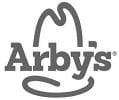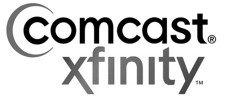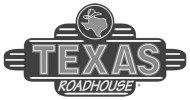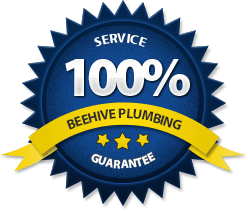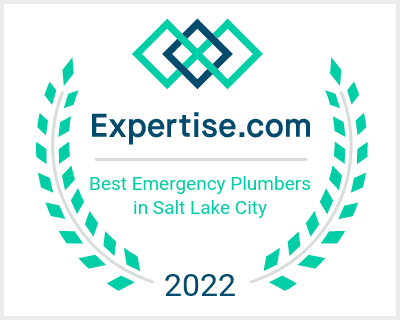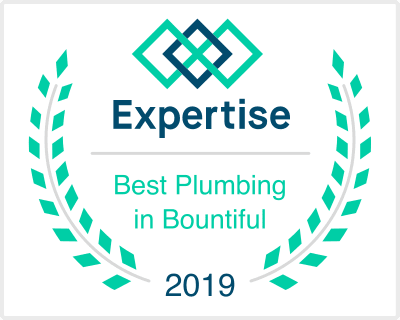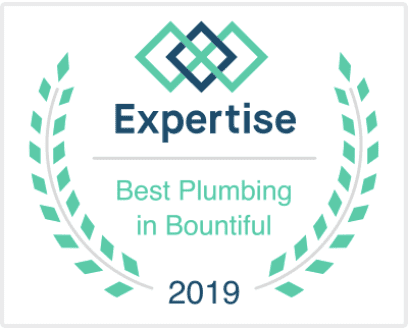Electric water heaters are very popular in northern Utah, but buyers should be well-informed before making these vital investments!
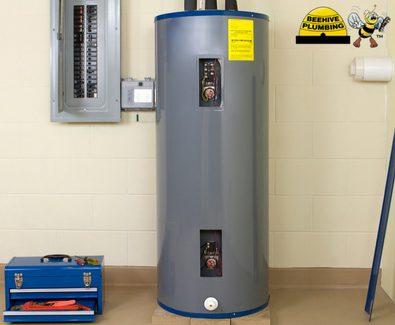
About 12% of a home’s entire energy consumption comes from water heating, so it makes sense why northern Utah homeowners are increasingly more interested in efficient water heaters.
We’ve helped countless homes and businesses with our electric water heaters, and we understand how stressful these types of investments can be when you have multiple options to choose between.
Below we’ll be delving deeper into the pros and cons associated with electric water heaters!
What Are The Pros & Cons of Electric Water Heaters?
Electric water heaters are incredibly popular among both homes and businesses in northern Utah, but it’s still difficult for consumers to gauge the pros and cons of these appliances.
Our electric water heaters are made from state-of-the-art materials and tech components, but there are some benefits and drawbacks associated with electric water heating setups that you should know about!
Pros of Electric Water Heaters
There are a lot of reasons why property owners should consider an electric water heater installation—as opposed to installing a gas water heater. Some of the most important advantages to keep in mind include:
Lower Upfront Costs
Electric water heaters are going to be your most affordable option within today’s marketplace. Although the overall cost will depend upon factors like your water heater’s size, you can expect significant upfront savings as compared to other pricier options like tankless water heaters.
Gas water heaters also usually require additional ventilation and piping installations, whereas electric water heaters don’t require any additional infrastructure. This makes the installation process much smoother.
Although electrical upgrades are sometimes needed prior to electric water heater installations, these upgrades are very rare.
Superior Efficiency
Water heaters come with energy factor (EF) ratings, and this rating evaluates the unit’s overall effectiveness to produce hot water in comparison to how much electricity/fuel it requires to perform its daily duties. When you check out the EF ratings between multiple water heaters, you can quickly compare efficiency due to higher EF numbers equating to higher overall efficiency.
Within the long-term industry battle between electric and gas water heaters, electric water heaters are undoubtedly the winners when it comes to energy efficiency. Gas water heaters generally have EF ratings around 0.5 to 0.7, and most electric water heaters have EF ratings of 0.9 or higher. This is due to gas water heaters losing energy during their venting process, which isn’t applicable to electric units.
Better Safety
Although both gas and electric water heaters provide safe water-heating solutions, it’s important to remember that there are inherent risks associated with running your household appliances on gas. Gas units are far more susceptible to serious dilemmas like leaks, and this is particularly the case if the system runs on natural gas or propane. The good news for gas water heater owners is that they can manage these risks by investing in routine inspections and maintenance on at least a yearly basis.
And even though electrical appliances also come with their own inherent safety risks, gas leaks are much more likely as compared to potentially experiencing any kind of electrical safety dilemma connected to your water heater.
Widespread Availability
Pretty much every property in northern Utah is connected to a municipal power grid, which means that pretty much any home or business can utilize an electric water heater.
The same can’t be said for gas water heaters, because these appliances will require an underground connection to a natural gas line or a propane tank. If a property doesn’t have a municipal gas line connection, then it could be costly to properly install a gas water heater unit.
Cons of Electric Water Heaters
Electric water heaters aren’t the best option for every property, and below are some drawbacks that you should keep in mind:
Recovery Rates & Heating Times
If you currently spend a good amount of time waiting for your shower water to heat up with a gas water heater, then this process might take even longer with an electric water heater. This is generally due to gasoline’s more rapid combustion process as compared to electric heating.
Gas water heaters are also known for having a higher recovery rate, which often makes them a better option for larger households with significant hot water needs. However, the good news is that a household with just a few people won’t require such a high recovery rate.
Power Outages
If your municipality’s power grid goes down to a weather event or other situation, it’s likely that your property won’t have access to hot water—unless you own a generator. This is different in comparison to gas water heaters, which can often operate during power outages.
If this is an important factor to you, then you should also verify that your preferred gas water heater doesn’t require electricity in order to operate. A lot of newer gas water heaters will utilize an electrical ignition as opposed to a pilot light, so dilemmas can simply occur during power outages regardless of your water heater’s fuel source!
Operational Costs
Even though it’s obvious that electric water heaters are more efficient than their gas counterparts, you’ll still likely spend less money with a gas unit. This is because the overall cost between the two fuel sources is higher with electricity than natural gas.
Some municipalities in northern Utah may offer financial incentives and tax rebates for installing an electric water heater, and our specialists will help you receive these savings when it makes sense for you and your property!
Reach Out To Beehive Plumbing To Learn More About Our Electric Water Heaters!
Beehive Plumbing is a top-rated plumbing enterprise that supports the entire northern Utah region, and we’re here to help you purchase and install a new electric water heater at your home or business.
Contact us online or call us at 801-849-3851 to speak with our Master Plumbers today about our many different electric water heater options!
